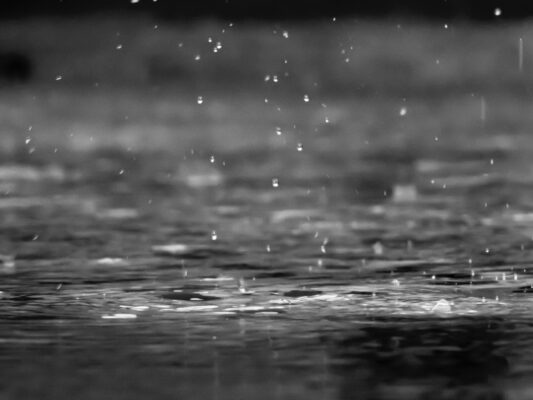Remember when NH Democrats said a tax on wages was not an income tax? They got some Freshman stooge to say it out loud, but same difference. A tax on income is an income tax. Democrats in Dover are playing the same game but with rain.
Dover claims a burning need to use EPA regulations to justify a massive revenue grab. Great Bay. Stormwater runoff. Nitrogen mitigation. The city will need millions more dollars to address this “concern,” and hey, it’s not a rain tax.
“People are going to say this is just another tax, or think we’re taxing rainwater. We’re not,” Shanahan said. “We need to work on stormwater and flood resiliency, and the utility is a significant part of that. We can’t put this off. The committee’s report shows we’ve put off upwards of $5.5 million in deferred projects, because we needed to stay within the tax cap and focus on other priorities.”
The city is going to take money from people to address the problem, and the problem is that water falls out of the sky onto hard surfaces and runs off to wherever. Their solution is a new government utility funded by tax dollars to address the problem. But it’s not a rain tax.
“We [are] obligated to do this, but we also have structured it so that the average homeowner, will pay less in a utility fee than they would pay in property taxes for the amounts that the city is going to have to spend to manage stormwater and improve flood resilience,” Shanahan said.
The tax on the rain that’s not a rain tax costs Dover residents 3.5 million annually for starters (that will only go up). To get there from here, they need an additional 2.5 million. And they will do that by creating a new “utility” to manage the rain with monies that are not a rain tax.
“A stormwater utility is structured to be more equitable than the tax,” Shanahan said. “Areas that include large businesses with large parking lots are going to be a little bit more responsible than your average homeowner.”
Translation: The cost of doing business in Dover will go up, and guess who will end up paying for that? Everyone else. When the local government increases the cost of doing business, those increases get passed down to consumers (I’m confident Dover has a newspeak word for that too).
But no matter what you call it, adding another cost will put more pressure on businesses. Fewer employees, cut benefits, fewer hours, lower wages (or less frequent raises), or a reduction in products or services. It may even be an extinction event for some job creators.
And this is how ‘Democrats’ lower property taxes. It’s not a property tax its a utility fee. They take more but call it something else or have some other entity take it for them. You know, the same way a tax on your wages (income) is not an income tax.
The City Council will be discussing this again at Wednesday’s Town Council Meeting (6/8/2022).
Ordinance Committee and Utilities Commission to begin planning stormwater utility
The City Council’s Ordinance Committee will meet jointly with the Dover Utilities Commission in a workshop session on Monday, June 13, to discuss the creation of a stormwater utility.
On Feb. 23, 2022, the City Council approved a resolution that states its intent to develop and implement a stormwater utility by fiscal year 2024 to invest in and maintain the city’s public stormwater infrastructure. The creation of a utility was the recommendation of the ad-hoc Committee to Study Stormwater and Flood Resilience, which the Council also voted to accept on Feb. 23.
To create the framework for a stormwater utility, the City Council tasked city staff to work with the Ordinance Committee and the Dover Utilities Commission. At this kickoff joint workshop, the commission and committee members will review the ad-hoc committee’s recommendations, review pending grant funding applications and the staff work’s plan.
In August 2020, the Council established the ad-hoc committee to investigate, study, identify and make recommendations to the City Council about funding opportunities for existing needs and future stormwater and flood resilience management planning. Stormwater runoff travels across rooftops, roads, parking lots, and other impervious surfaces that can collect and carry pollution that ends up in local water bodies such as Willand Pond and the Great Bay Estuary and groundwater aquifers used for drinking water.
The joint public workshop will be held in City Hall’s Council Conference Room at 6 p.m. Click here for the complete agenda and background materials.
